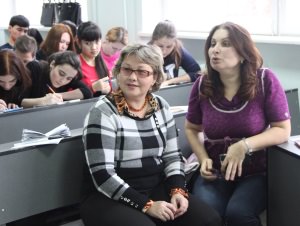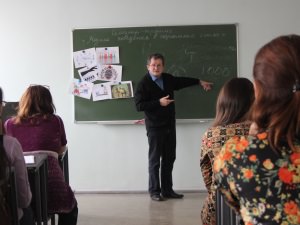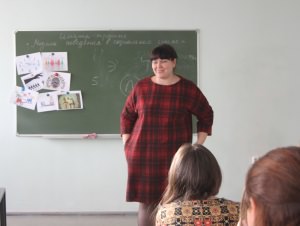Psychology of Behavior in Social Networks
 21.12.2015
21.12.2015
On Dec. 18, 2015, the Training Workshop “Models of Behavior in Social Networks” has taken place at the Department of Psychology of Astrakhan State University. The event has been arranged by our Chair of Conflict Studies & Organizational Psychology.
Development of skills of protective behavior in social networks has been the main theme of the Workshop, as well as counteraction to young people’s recruitment by extremist and terroristic organizations. The event agenda has included various forms of practical assignments: not only learning new information about terrorism, but also development of practical skills to recognize threats and resist psychological influence in social networks.
Professor Boris Kaygorodov, Dean of the Department, has handled the discussion “How Do We Become Aware that We Are Being Manipulated in Social Networks?” He has suggested discussion of acute themes and told about features of extremism and its consequences, as well as about methods and techniques that terrorists apply to recruit young people.
Dr. Larisa Timasheva, an Associate Professor of the Chair of Conflict Studies & Organizational Psychology, has analyzed recognition of psychological traps in social networks. Our students have been told about such traps in details. They could study special cases to learn how to handle a virtual communication process and recognize such psychological traps as idealization of a person one is talking with, illusion of understanding and acceptance, loss of self-identity, manipulative imposition of the role of a person who is obliged to do something, and fear of real communication.
Dr. Svetlana Taysaeva, another Associate Professor of the Chair of Conflict Studies & Organizational Psychology, has handled diagnostic work with the Workshop participants. It aimed to reveal means and types of psychological protection in social networks.
As for Dr. Yulia Kuznetsova, Head of the Chair of Conflict Studies & Organizational Psychology, she has handled the students’ teamwork to develop their skills of recognizing verbal influence in social networks. Types, impacting mechanisms, and techniques of both direct and indirect suggestion has been under careful consideration. Team interaction was another aspect of the teamwork. Its winners have received prizes.
All the participants of this event say that such a workshop is of real importance and that it was indeed interesting for them to participate in it.
Russian original information and photo source: the Chair of Conflict Studies & Organizational Psychology of ASU





